Abstract
Sultzer, Barnet M. (Michigan State University, East Lansing). Oxidative activity of psychrophilic and mesophilic bacteria on saturated fatty acids. J. Bacteriol. 82:492–497. 1961.—Comparisons were made of the capacity of representative psychrophilic pseudomonads and of the mesophilic Serratia marcescens and Sarcina flava to oxidize sodium salts of fatty acids at temperatures ranging from 7.5 to 40 C. Conventional manometric techniques were employed to determine respiration of whole cells and of cell-free extracts of the bacteria. Reaction velocity constants were measured with whole cell preparations on octanoate at temperatures between 7.5 and 40 C. Temperature characteristic (μ) values, obtained by an Arrhenius plot of these reaction velocity constants, revealed a dissimilarity in response of the different types of organisms to the influence of decreasing temperature. The psychrophiles exhibited significantly lower μ values while oxidizing octanoate at much higher rates throughout the same temperature range. Changes in the slopes of the Arrhenius plots at various temperatures emphasized the differences in μ values between the psychrophiles and mesophiles. Extracts of these organisms were tested for their cofactor requirements and all were found to require adenosine triphosphate and coenzyme A to activate the octanoate oxidase system. Thus, in this experimental system, differences between these types of bacteria in their oxidative response to a saturated fatty acid cannot be explained by the initial activating mechanism involved. The implications of these findings are discussed in terms of the growth and physiological activity of psychrophiles at low temperatures.
Full text
PDF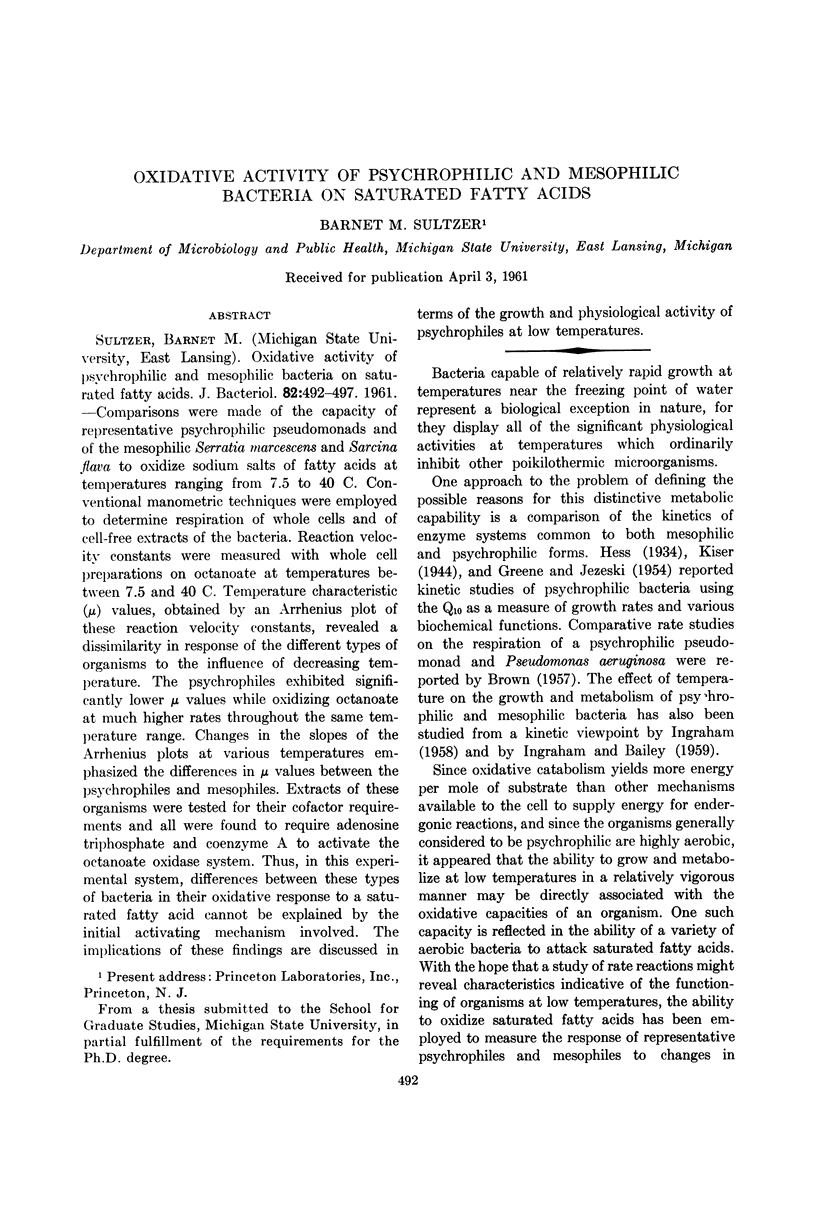
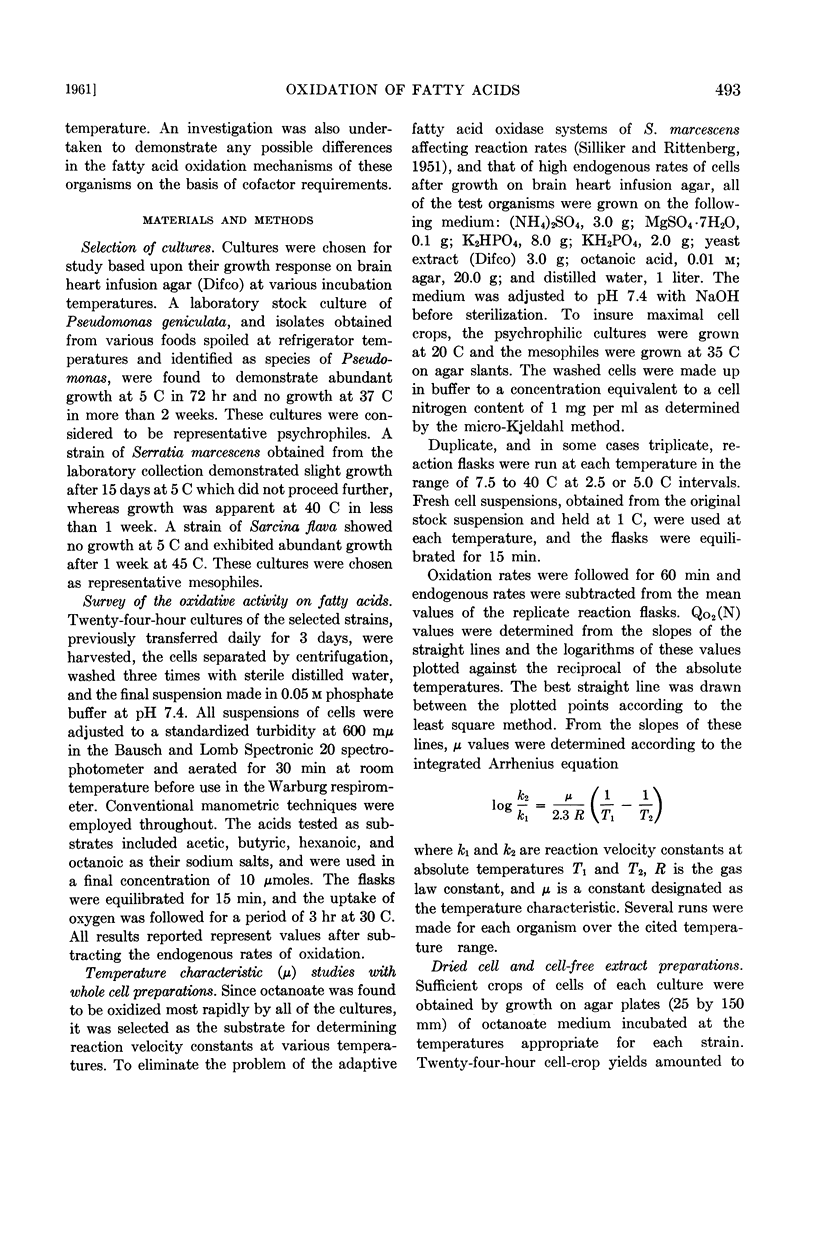
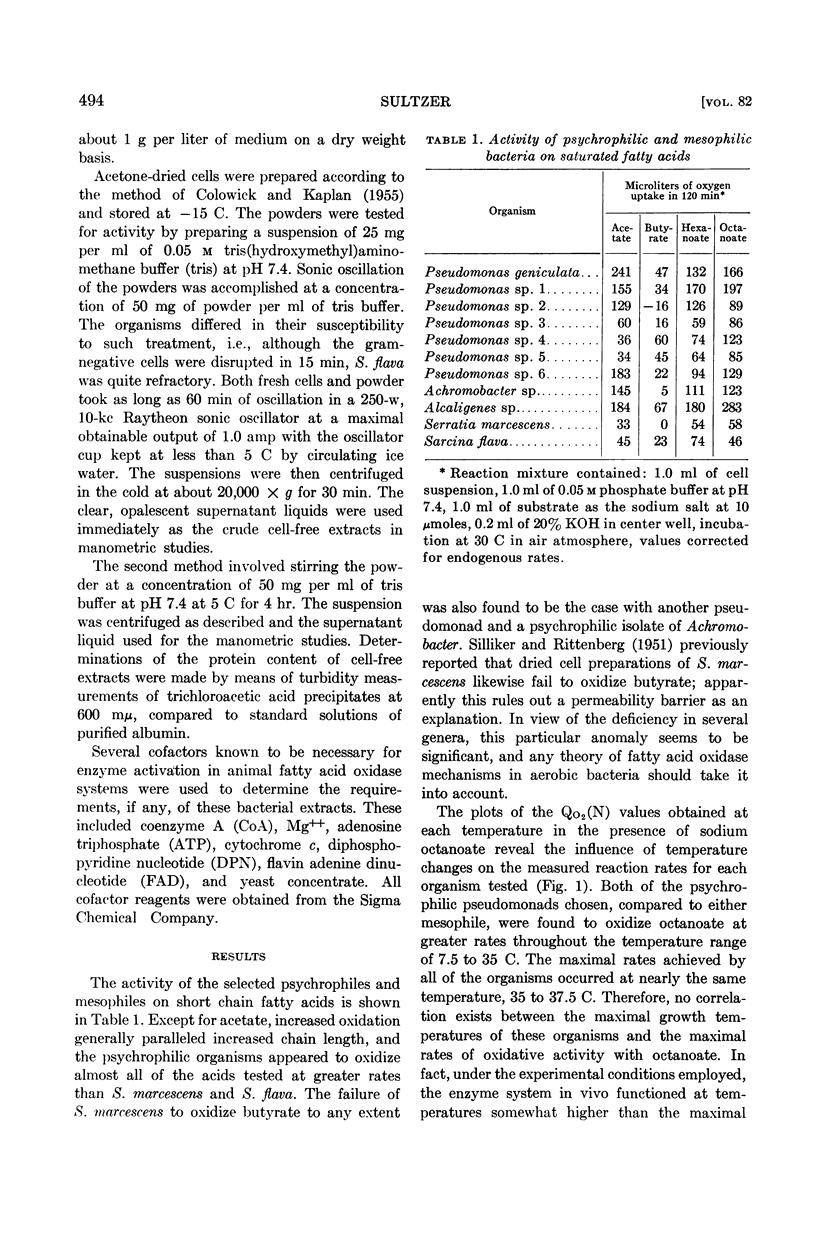
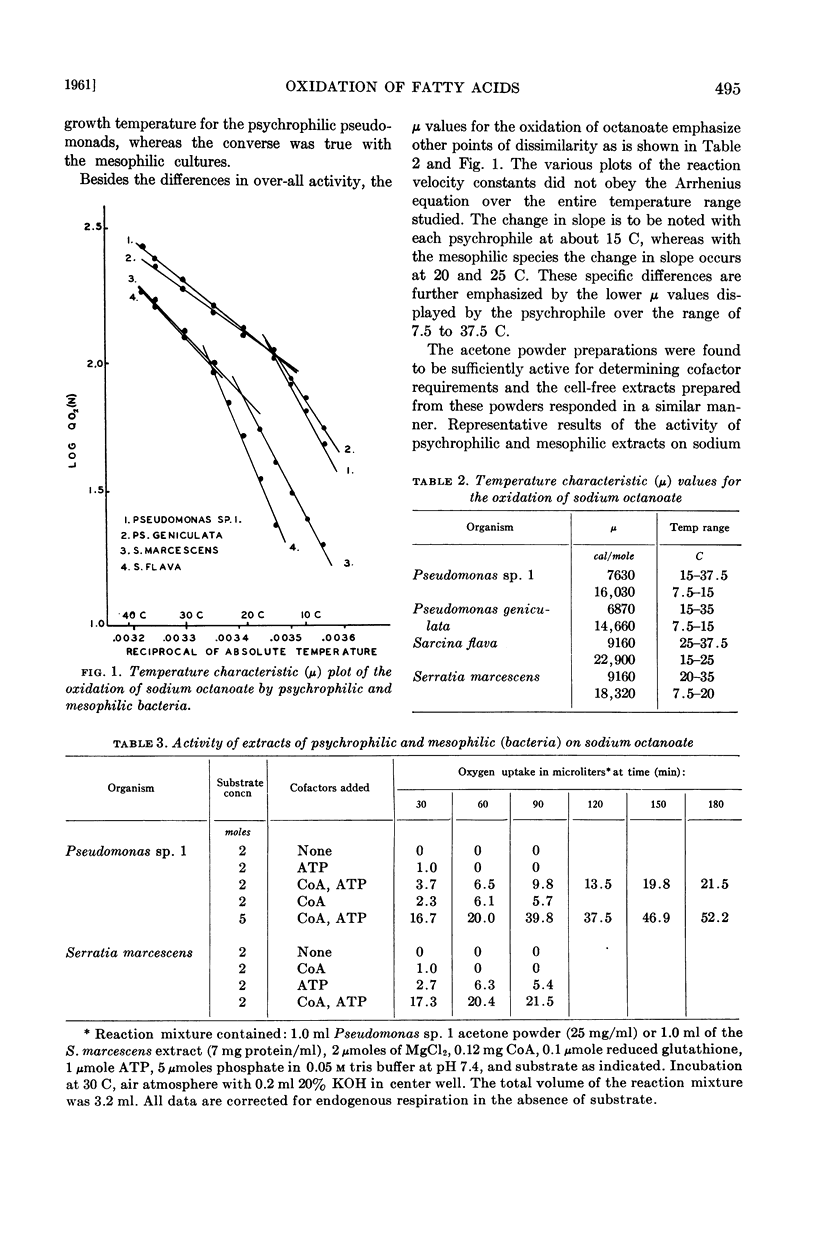
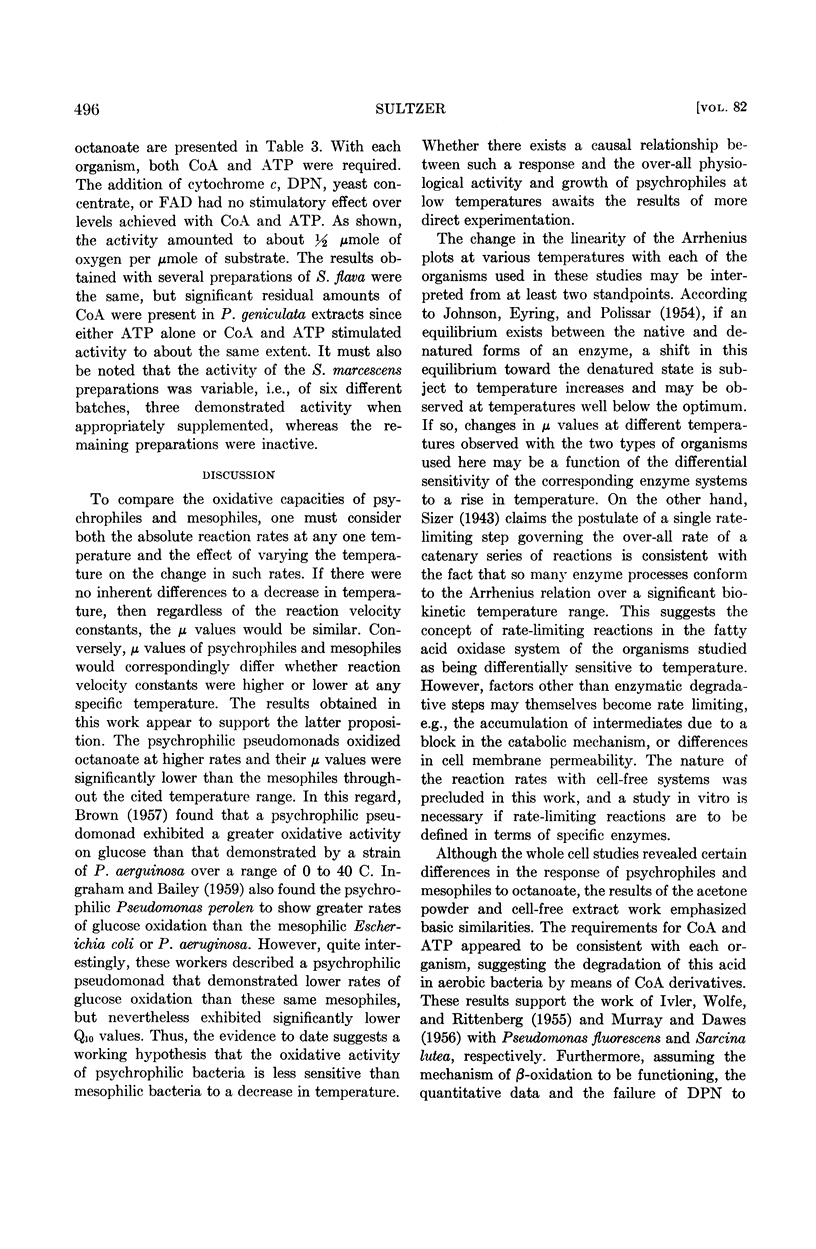
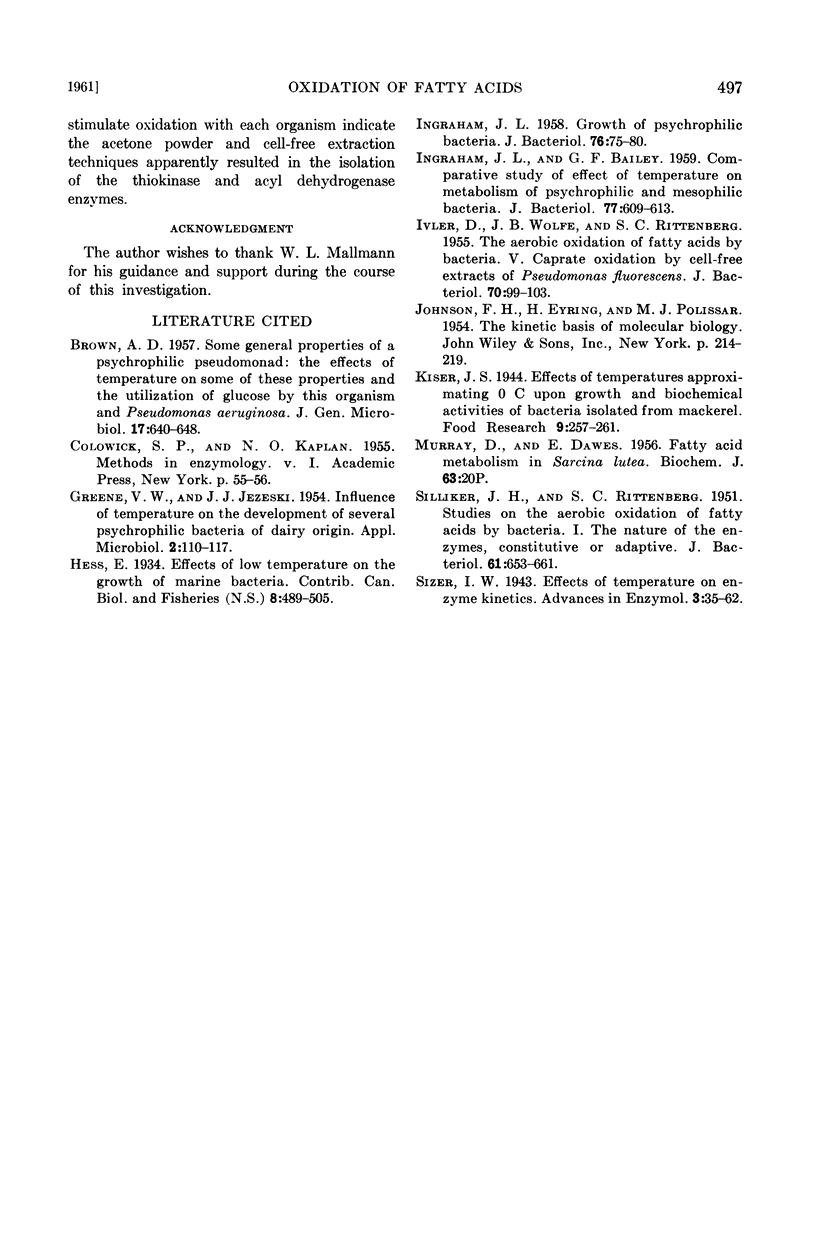
Selected References
These references are in PubMed. This may not be the complete list of references from this article.
- BROWN A. D. Some general properties of a psychrophilic pseudomonad: the effects of temperature on some of these properties and the utilization of glucose by this organism and Pscudomonas aeruginosa. J Gen Microbiol. 1957 Dec;17(3):640–648. doi: 10.1099/00221287-17-3-640. [DOI] [PubMed] [Google Scholar]
- GREENE V. W., JEZESKI J. J. Influence of temperature on the development of several psychrophilic bacteria of dairy origin. Appl Microbiol. 1954 Mar;2(2):110–117. doi: 10.1128/am.2.2.110-117.1954. [DOI] [PMC free article] [PubMed] [Google Scholar]
- INGRAHAM J. L., BAILEY G. F. Comparative study of effect of temperature on metabolism of psychrophilic and mesophilic bacteria. J Bacteriol. 1959 May;77(5):609–613. doi: 10.1128/jb.77.5.609-613.1959. [DOI] [PMC free article] [PubMed] [Google Scholar]
- INGRAHAM J. L. Growth of psychrophilic bacteria. J Bacteriol. 1958 Jul;76(1):75–80. doi: 10.1128/jb.76.1.75-80.1958. [DOI] [PMC free article] [PubMed] [Google Scholar]
- IVLER D., WOLFE J. B., RITTENBERG S. C. Studies on the aerobic oxidation of fatty acids by bacteria. V. Caprate oxidation by cell-free extracts of Pseudomonas fluorescens. J Bacteriol. 1955 Jul;70(1):99–103. doi: 10.1128/jb.70.1.99-103.1955. [DOI] [PMC free article] [PubMed] [Google Scholar]
- SILLIKER J. H., RITTENBERG S. C. Studies on the aerobic oxidation of fatty acids by bacteria, I. The nature of the enzymes, constitutive or adaptive. J Bacteriol. 1951 Jun;61(6):653–659. doi: 10.1128/jb.61.6.653-659.1951. [DOI] [PMC free article] [PubMed] [Google Scholar]


